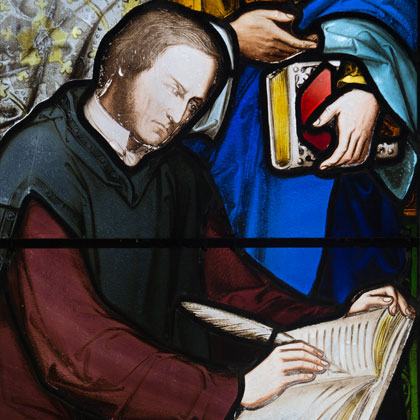
An ecumenical commemoration of George Boole's death on 8 December 2014 in a service of choral evensong at St Michael’s Church of Ireland, Blackrock, Cork.
During George Boole’s bicentennial year 2015, University College Cork will celebrate the man and his achievements. We began the series of events with the commemoration of his death on 8 December 2014 and a service of choral evensong at St Michael’s Church with Revd Canon Mark Hocknull, Lincoln Cathedral (Preacher).
In 1849, George Boole was appointed the first Professor of Mathematics at Queen’s College, now University College, Cork. His research became a prelude to modern mathematics, microelectronic engineering and computer science. Indeed, it is no exaggeration to say that Boole laid the foundations of the information age. Boole received a Gold Medal for Mathematics in 1844 from the Royal Society, and was elected Fellow of the Royal Society in 1857. He published many scientific papers and four books, the most famous of which is his magnum opus An Investigation of the Laws of Thought (1854) written in Cork.
The definitive biography of Boole is The Life and Work of George Boole: A Prelude to the Digital Age, by University College Cork Emeritus Professor of Mathematics, Desmond MacHale (Boole Press, 1985; second edition Cork University Press, 2014). Professor MacHale describes Boole’s deep religious convictions as among the primary motivating influences on his research.
In 1855, Boole married Mary Everest, niece of Sir George Everest after whom the world’s highest mountain is named. The couple lived at Lichfield Cottage, Ballintemple, and they had five daughters, Mary Ellen, Margaret, Alicia, Lucy and Ethel Lillian, all of whom became highly accomplished in their own right. In addition to his university teaching and research, Boole was also active in adult education in Cork.
Sadly, in December 1864, Boole died of an attack of fever. He is buried in the Church of Ireland cemetery of St Michael's in Cork, where he regularly attended services with his family.